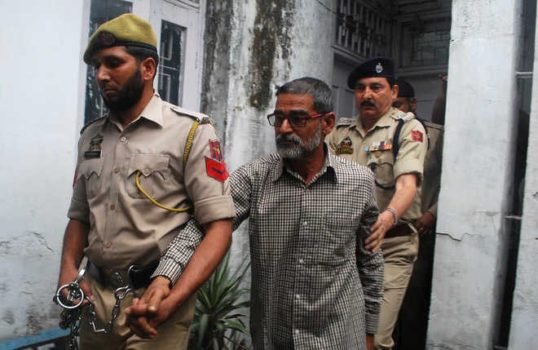In light of the recent horrific rape in Jammu and Kashmir, there’s been much focus on the community in question – The Bakarwals. Apart from their Sunni-Muslim identity, most of us know far too little about this tribe who are in the middle of an unfamiliar storm.

The Bakarwals are a pastoral people, found within the entire Kashmir region. Traditionally, they work as goatherds and shepherds, and live a nomadic lifestyle.
They follow a pattern of seasonal movement with their livestock, alternating between higher pastures in the summer and lower valleys in the winter.

Once the winter snow begins to melt, the Bakarwals journey with their sheep, goat, horses and buffaloes up to the higher alpine meadows so their animals can graze.
The expedition involves the entire family, and can take up to a month through tough terrain and unpredictable weather to complete.
On the whole, these mountain dwellers are on the move for about 110 to 130 days in a year.

Sankar Sridhar, a photographer from Kolkata who has been documenting the Bakarwals for 15 years, told the Daily Mail –
“As with all nomadic communities, the lifestyle of the Bakarwal shuttles between intense movement and utter stillness – it is like being privy to completely different ways of living.

This travelling tribe has a unique connection with nature – a oneness, and a degree of respect for their surroundings that a lot of us could do well to understand and imbibe.

Times have changed for the Bakarwals however. Once loved and respected for their peaceful but arduous lifestyle, they now have to contend with convoys of vehicles on their migratory routes, and a massive risk of landslides due to blasting of mountains.
They also have to deal with encroachment on their land while they’re not there, and issues like their sheep being stolen and their dogs being poisoned.

The mounting problems of the Bakarwals came to a boil recently with the barbaric gang-rape and brutal murder of a girl child from the same community.
It is alleged that Sanji Ram (one of the key accused) conspired to carry out the act as a means to drive the Bakarwal minority off his native Rasana village.

In fact, reports suggest Sanji Ram had a history of bad blood with the nomads.
He was allegedly against the settlement of the Muslim Bakarwals in Rasana Kootah, and would frequently encourage members of his community to not provide land for grazing or any other kind of assistance, fostering enmity.
His concerted efforts seem to have escalated the conflict between Hindu villagers and Muslim nomads.
There were fights over the trespassing of cows and sheep. In one case, Sanji Ram even charged a nomad Rs. 1,000 for his buffaloes entering his fields.

In the end, it culminated in tragedy in a form no one could imagine. And in the midst of all this chaos, the family of the little Bakarwal girl quietly set off for higher climes, as they do each year.

















